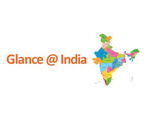Prime Minister's Science, Technology and Innovation Advisory Council (PM-STIAC) Missions
The Prime Minister's Science, Technology and Innovation Advisory Council (PM-STIAC) is an overarching Council that facilitates the PSA’s Office to assess the status in specific science and technology domains, comprehend challenges in hand, formulate specific interventions, develop a futuristic roadmap and advise the Prime Minister accordingly. PSA’s Office also oversees the implementation of such interventions by concerned S&T Departments and Agencies and other government Ministries.
During the period between October 2018 to January 2019, the Office of Principal Scientific Adviser to Government of India held four meetings of the PM-STIAC, which resulted in the formulation of nine different technology missions. Each mission will be led by a Ministry lead and will engage international and national institutional partners, young scientists and industry partners.
Natural Language Translation
Objective: To make opportunities and progress science and technology accessible to all, this mission aims to remove the barrier that a requirement of high level faculty in English poses today. Using a combination of machine and human translation, the mission will eventually enable access to teaching and researching material bilingually- in English and one's native Indian language.
It is planned to set up an ecosystem which involves central and state government agencies and start-ups who will work with scientists and build implementable solutions.
Lead Agencies:
Ministry of Electronics and Information Technology (MeitY)
Ministry of Human Resource Development (MHRD)
Department of Science and Technology (DST)
Electric Vehicles
Objective: This mission is critical for India to reduce fossil fuel consumption and mitigate emissions. Electric vehicles (EVs) are a major component of India' mobility plans. For EVs to become economically viable and scalable, focused research, development and innovation are needed to build indigenous capability. Vehicles need to be energy efficient, use light-weight and efficient batteries that function well in Indian conditions with materials that are recyclable. Developing vehicle sub-systems and components for Indian requirements including rare-earth based electric motors, Lithium-ion batteries, power electronics etc. will be addressed using academia-industry collaborations.
Lead Agencies:
Department of Science and Technology (DST)
Department of Heavy Industries (DHI)
Ministry of New and Renewable Energy (MNRE)
Ministry of Power
NITI Aayog
Artificial Intelligence
Objective: There are now incredible advances in data collection, processing and in computation power. Intelligent systems can now be deployed in a variety of tasks and decision-making to enable better connectivity and enhance productivity. The Artificial Intelligence (AI) mission will focus on efforts that will benefit India in addressing societal needs in areas such as healthcare, education, agriculture, smart cities and infrastructure, including smart mobility and transportation.
This mission will work with extensive academia- industry interactions on developing core research capability at national level which will include international collaborations. It will push technology frontiers through the creation of new knowledge and in developing and deploying applications.
Lead Agencies:
NITI Aayog
Department of Science and Technology (DST)
Ministry of Electronics and Information Technology (MeitY)
National Biodiversity Mission
Objective: This mission will involve a comprehensive documentation of India's biodiversity with the potential for cataloguing and mapping all life forms in India including associated cultural and traditional practices; assessment of the distribution and conservation status of India's biodiversity; development of a cadre of professionals adept at handling large sets of environmental data for management and monitoring of biodiversity; expansion of knowledge in ecosystem functioning that will inform restoration efforts; establishment of a vibrant biodiversity based economy on a solid foundation of reliable information; engagement with the public; enhanced options for agricultural production and livelihood; security and general well being of society.
Lead Partners:
Ministry of Environment, Forests and Climate Change (MoEFCC)
Department of Biotechnology (DBT)
Quantum Frontier
Objective: This mission aims to initiate work in control of the quantum mechanical systems with a large number of degrees of freedom as one of the great contemporary challenges in fundamental science and technology. Building excellence in the quantum frontier through this mission will also be essential fir national security and development of quantum computers, quantum chemistry, quantum communication, new materials, quantum sensors, and quantum cryptography.
Lead Agencies:
Department of Science and Technology (DST)
Department of Space (ISRO)
Department of Atomic Energy (DAE)
Defence Research and Development Organization (DRDO)
Ministry of Electronics and Information Technology (MeitY)
BioScience for human Health
Objective: The diversity of Indians and of our environment requires a large-scale study of human genomes specific to our lifestyle and how this impacts health disease patterns. The mission will make use of healthy and diseases samples to understand the impact of nature and nurture on health. the primary goal of the mission is to construct comprehensive reference maps of genomes and to understand the dynamics of how exposure to different environments impact our bodies.
The mission will focus on the genomic study of populations of humans to identify and unravel the genetic basis and prevalence of rare and inherited diseases. The outcome will help simulate better diagnosis and treatment that can feed into the health care system of the country.
Lead Partners:
Department of Biotechnology (DBT)
Department of Health Research (DHR)
Ministry of Health and Family Welfare (MoHFW)
Department of Science and Technology (DST)
Department of Atomic Energy (DAE)
Waste to Wealth
Objective: To identify, develop and deploy technologies to treat waste to generate energy, recycle materials, and extract resources of value. The mission will also work to identify and support the development of new technologies that promise to create a clean and green environment.
The mission will assist and augment the Swachh Bharat and Smart Cities projects by leveraging science, technology and innovation to create circular economic models that are financially viable for waste management to streamline waste handling in the country.
Lead Agencies:
Department of Biotechnology (DBT)
Department of Science and Technology (DST)
Ministry of Earth Sciences (MoES)
Swachh Bharat Abhiyan
Deep Ocean Exploration
Objective: To scientifically explore the deep oceans towards improving our understanding of the blue frontier. The information from this mission will address issues arising from long term changes in the oceans due to climate change. The focus areas cover the development of technologies for deep sea exploration and exploitation of living (biodiversity) and non-living (minerals) resources; development of underwater vehicles and underwater robotics; development of ocean climate change advisory services; technological innovation and conservational methods for sustainable utilization of marine bio-resources; offshore based desalination techniques; and renewable energy generation.
Lead Agencies:
Ministry of Earth Sciences (MoES)
Department of Biotechnology (DBT)
Department of Space (ISRO)
Ministry of New and Renewable Enegy (MNRE)
Oil and Natural Gas Corporation (ONGC) Limited
Defence Research and Developmental Organization (DRDO)
Geological Survey of India (GSI)
National Hydrographic Office
National Biodiversity Authority (NBA India)
Accelerating Growth of New India's Innovations (AGNIi)
Objective: Launched by the Office of the Principal Scientific Adviser, AGNIi aims to support the national efforts to boost the innovation ecosystem in the country by connecting innovators across industry, individuals and the grassroots to the market and help commercialize innovative solutions. AGNIi will provide a platform for innovators to bring their technology ready products and solutions to industry and the market, thereby helping propel techno-entrepreneurship which can usher a new era of inclusive socio-economic growth.
aims to support the national efforts to boost the innovation ecosystem in the country by connecting innovators across industry, individuals and the grassroots to the market and help commercialize innovative solutions. AGNIi will provide a platform for innovators to bring their technology ready products and solutions to industry and the market, thereby helping propel techno-entrepreneurship which can usher a new era of inclusive socio-economic growth.
The mission includes services across the techno-commercialisation chain required to support and upscale market-ready indigenous innovations. The initiative includes working with government R&D laboratories and academia to to help commercialize their innovations; collaborate and value add to existing innovation programs; training and capacity building of scientists, innovators, technology transfer offices and technology license offices. Linking specific needs of industry to research laboratories to enable development of cost-effective marketable solutions is another focus of the AGNIi program.
Lead Partner:
Invest India
Other Major Projects of PM-STIAC
Apart from the 9 missions, the Office of Principal Scientific Adviser has also initiated other major Science, Technology and Innovation projects, including;
Research Clusters
Several cities have seen major investments in research infrastructure and in creating pools of trained scientific manpower, while establishing high-end S&T institutions. Similarly, knowledge industry has also grown as an enterprise in these cities. Yet, connect between R&D institutions, academia-including state universities, and industry remains as a challenge. The aim of creating city research clusters is to provide a platform to leverage the complementary strengths through effective collaboration and cooperation by developing a functional connect. The clusters will serve as hubs, which will interact with the broader city ecosystem including state universities, colleges, medical schools and local administration. The effort will also address development of research programmes in the state university system by providing an enabling ecosystem.
Earth Museum
The Indian subcontinent has a unique and diverse geological heritage that needs to be preserved as it links our present to the past. India was a cradle for the evolution of many biotic elements and their subsequent dispersal to other continents. Thus, fossils and geological features form an important component of India's natural heritage besides their role in understanding past and present-day climate systems and in the exploration of natural resources. It is important that our unique geological heritage should be showcased in an exemplary manner, which is both scientific and educative-- through establishing a state-of-the-art Earth Museum.
The Earth Museum will not only serve as a national repository for specimen fossil preservation and conservation, but will also be designed as a major centre for research in geological and other natural sciences. This will help educate students and citizens about the exploration, conservation and preservation of our natural heritage, along with its academic and scientific significance.
Brahmaputra River System
The Brahmaputra river basin forms a critical ecological lifeline of flora and fauna for the north-east states of India. There is a need for a multi-disciplinary applied approach for policy, planning and development and to provide R&D based, validated scientific input for river basin planning, management and development (scientific modelling, simulation, prediction) for Brahmaputra river. This can be done through robust scientific data collection and sharing, integrate satellite imagery and use such scientific data for sustainable and integrated development of North Eastern states of India.
Indian Science, Technology and Engineering Facilities Map (I-STEM)
To ensure access through a regularly updated national portal of publicly funded R&D facilities and equipment - installed and working in R&D and academic institutions across the country. This web-based access will foster efficient and optimal use of equipment and capabilities as well as enable co-operation and collaboration in the R&D community, both academic and industrial. The I-STEM web portal will provide the effective gateway for linking researchers with resources.
Energy Security
Considering the national mission of Electric Mobility, an expert Committee for exploration and procurement of critical minerals required for this sector has been set up in consultation with the Ministry of Mines, Government of India, to examine the reserves of Lithium, Cobalt etc. in the country, as well as a possible tie-up with the mining sector of other countries for sourcing these. KABIL, a joint venture of Mineral Exploration Corporation Limited (MECL) , National Aluminium Company Limited (NALCO)
, National Aluminium Company Limited (NALCO) and HCL has initiated preliminary discussions for possible agreement on sourcing Lithium and Cobalt from countries like Australia, Argentina and Bolivia. After a visit to different mines in Argentina in February 2019, for a primary survey by the KABIL team, follow-up activities are now underway to boost the availability of these critical minerals.
and HCL has initiated preliminary discussions for possible agreement on sourcing Lithium and Cobalt from countries like Australia, Argentina and Bolivia. After a visit to different mines in Argentina in February 2019, for a primary survey by the KABIL team, follow-up activities are now underway to boost the availability of these critical minerals.


























